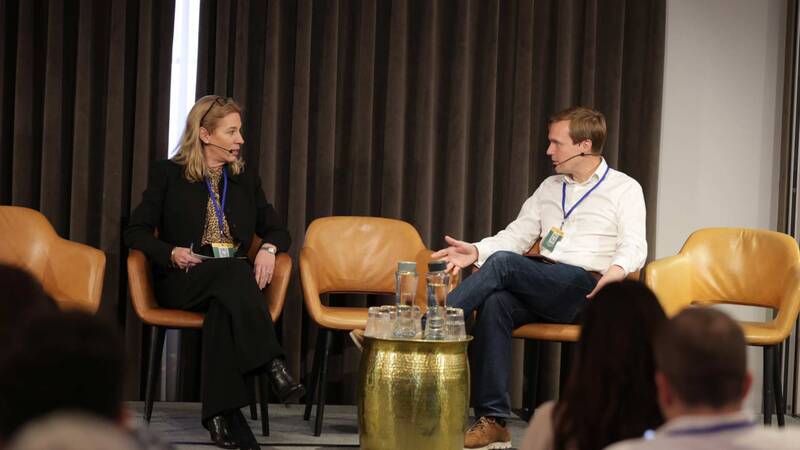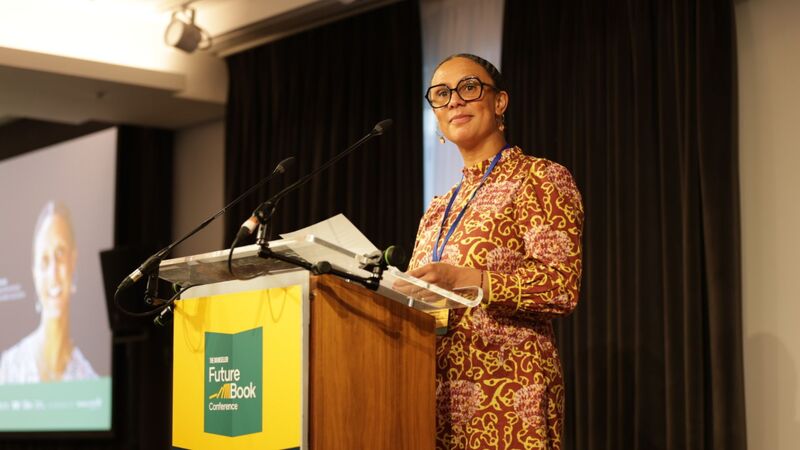You are viewing your 1 free article this month. Login to read more articles.
Ebury pre-empts WW2 diary of Polish teenager
The diary of a Polish teenager, Renia Spiegel, who was shot dead on the streets by Nazi soldiers weeks after her 18th birthday, has been pre-empted by Ebury’s Clare Bullock after 70 years of lying unread in a drawer.
Renia's Diary: A Young Girl’s Account of the Holocaust is editor Bullock’s first acquisition for Ebury and is drawing comparisons with Anne Frank’s Diary.
Bullock pre-empted UK and Commonwealth rights from Kerry Nordling, v.p. and director of sub-rights at St Martin's Press in New York last month. It will be published in hardback on 17th September 2019.
Spiegel was born in eastern Poland, now modern-day Ukraine, in 1924. In January 1939 she began to write a diary. When war broke out she and her sister were living in Przemyśl with her grandparents. Separated from her mother by the war, the next few years saw her living under first Soviet, then Nazi occupation and finally the creation of the ghetto. She was shot by Nazi soldiers weeks after her 18th birthday.
“When Renia begins writing her diary, like most fifteen-year-olds, her days are filled with schoolwork, friendships and flirtations,” Ebury said. “But Renia is Jewish, she lives in Poland, and the year is 1939. With the outbreak of war, her world begins to fragment. Separated from her mother, her life takes on a new urgency as she flees the city to escape night-time bombing raids, observes the disappearances of other Jewish families and, finally, witnesses the creation of the ghetto.”
“But alongside the terror of war, there is also beauty, as she falls in love for the first time. She and the young man she falls in love with, Zygmunt, share their first kiss a few hours before the Nazi invasion. And it is Zygmunt who writes the final, heart-breaking entry in Renia’s diary.”
The original diary was a small notebook that ran to 700 pages and the manuscript is now around 90,000 words, after being translated by Marta Dziurosz and Anna Blasiak.
Recently rediscovered after 70 years, Renia’s Diary “is already being described as a classic of Holocaust literature,” the publisher said. "Written with a clarity and skill that is reminiscent of Anne Frank, it is an extraordinary testament to both the horrors of war, and to the life that can exist even in the darkest times.”
Bullock, who joined Ebury from Jonathan Cape a year ago, told The Bookseller she had read about the diary in a Guardian article, and how it had been rediscovered after lying unread in a drawer for many decades.
“The diary had survived the war after being hidden by her first love, himself an Auschwitz survivor, who tracked down Renia’s mother and her sister Elizabeth in New York after the war to return it to them,” she said. “They could not bring themselves to read this reminder of what they had lost, and so the diary was kept in a safe until 2012. It was then that Alexandra Bellak, Elizabeth’s daughter, decided she had to discover more about her aunt, and sent it to a Polish translator.”
She told The Bookseller: “As soon as I read the diary, I realised this was something outstanding, the quality of the writing was superb, and the story itself, the detail of everyday life in extraordinary circumstances, was utterly compelling.
“I contacted St Martin’s Press to see if the rights were available, and ended up pre-empting the book, closing the deal with Kerry Nordling at 5.30pm on the last day before the Christmas holidays.
“The obvious comparison is Anne Frank, but I’d also mention The Cut Out Girl by Bart van Es and The Choice by Edith Eger.”
The blurb submitted from Ebury reveals the opening page of the diary: “1st January 1939. Why did I decide to start a diary today? Has something important happened? … No! I just want a friend. Somebody I can talk to about my everyday worries and joys. Somebody who will feel what I feel, believe what I say and never reveal my secrets.”
A longer extract has been published in the Smithsonian Magazine.


















